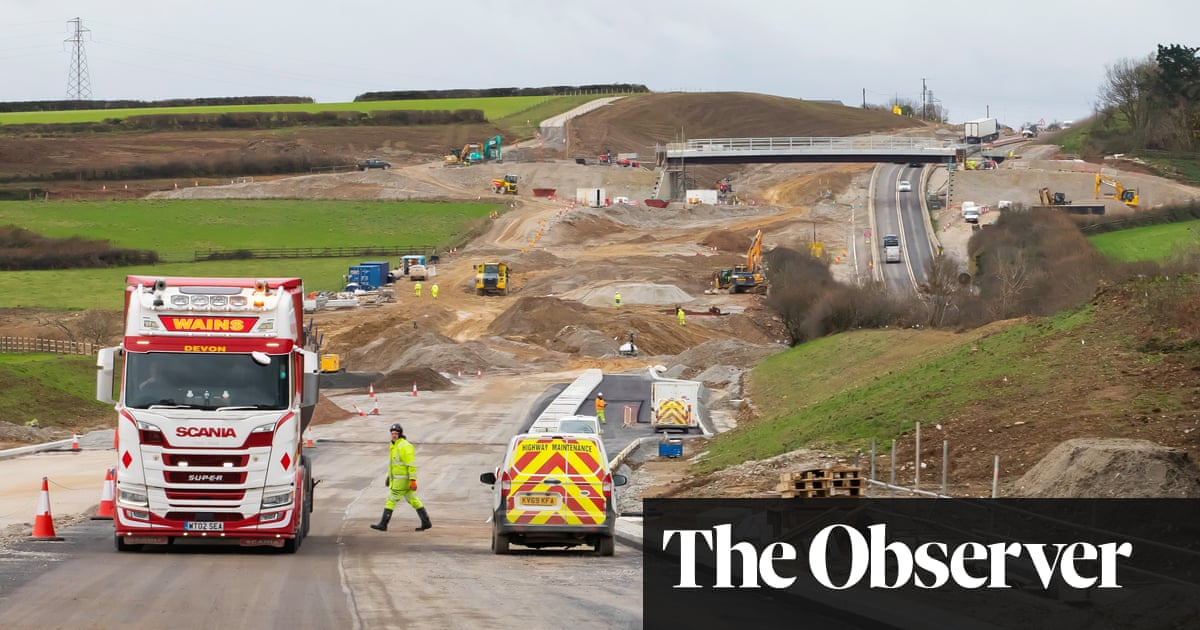As cars and lorries snail interminably along the A30 in Cornwall – the county’s notorious trunk road – the words of the furious driver in John Betjeman’s poem, Meditation On The A30, seem befitting: “I can’t go on crawling like this!”
Such frustrations are especially acute in summertime when tourists compete with hauliers, tractors and local residents for space on the asphalt, many of them en route to the coastal hotspots of Perranporth and St Ives. But those days could soon be gone.
A £330m roadworks scheme is nearing completion, with National Highways creating an 8.7-mile stretch of dual carriageway between Carland Cross and Chiverton, parallel to the existing A30, bringing the promise of prosperity for the local economy, as well as fears for the environment at a time of global heating.



This is the best summary I could come up with:
As cars and lorries snail interminably along the A30 in Cornwall – the county’s notorious trunk road – the words of the furious driver in John Betjeman’s poem, Meditation On The A30, seem befitting: “I can’t go on crawling like this!”
Such frustrations are especially acute in summertime when tourists compete with hauliers, tractors and local residents for space on the asphalt, many of them en route to the coastal hotspots of Perranporth and St Ives.
A £330m roadworks scheme is nearing completion, with National Highways creating an 8.7-mile stretch of dual carriageway between Carland Cross and Chiverton, parallel to the existing A30, bringing the promise of prosperity for the local economy, as well as fears for the environment at a time of global heating.
“For decades, this section of road has been a bottleneck because it’s the last bit of single carriageway between Birmingham and Camborne,” says Nick Simmonds-Screech, project director at National Highways.
Organic farmer Peter Mewton is one of many locals to endure compulsory purchase of land; he has lost four hectares (10 acres), a tenth of his farm, and says it has caused deep turmoil.
Mewton dismisses this as mere “greenwashing” but Simmonds-Screech says: “Our biodiversity net gain is currently around 20% and that could rise because we’re building miles of traditional Cornish hedgerows which are great for wildlife.”
The original article contains 972 words, the summary contains 223 words. Saved 77%. I’m a bot and I’m open source!